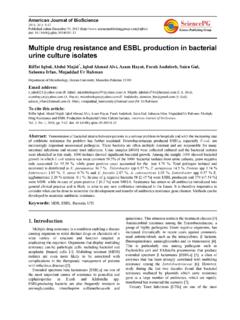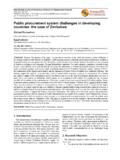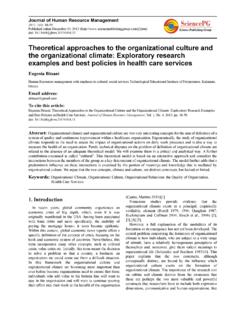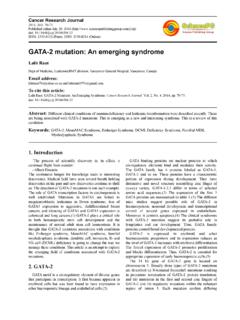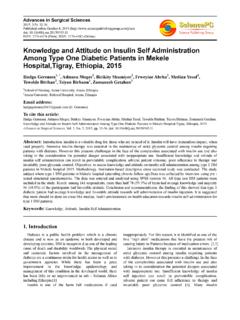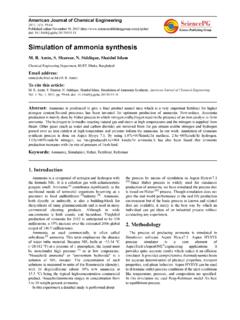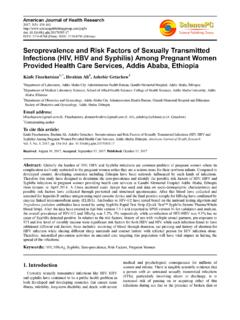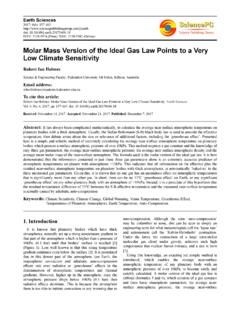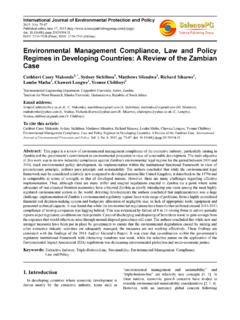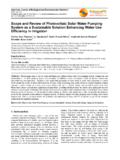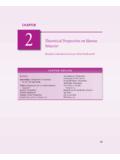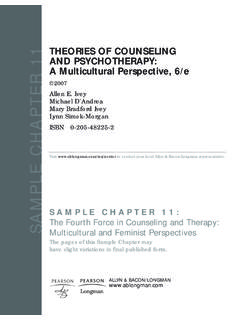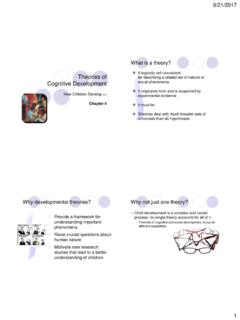Transcription of Holistic nursing care: theories and perspectives
1 American Journal of nursing Science 2013; 2(1) : 1-5 Published online February 20, 2013 ( ) doi: Holistic nursing care: theories and perspectives Ioanna Papathanasiou1, Melachrini Sklavou2, Lambrini Kourkouta3 1 nursing Department, Technological Educational Institute of Larissa, Greece 2 General Hospital of Larissa, Greece 3 nursing Department, Technological Educational Institute of Thessaloniki, Greece Email address: (I. Papathanasiou) , (I. Papathanasiou) To cite this article: Ioanna Papathanasiou, Melachrini Sklavou, Lambrini Kourkouta. Holistic nursing Care: theories and perspectives .
2 American Journal of nursing Science. Vol. 2, No. 1, 2013, pp. 1-5. doi: Abstract: Introduction: Holistic medicine and Holistic nursing aim at the improvement of healing of the individual as a bio-psycho-social unity, from birth until death. Aim: To search for current data on the value and applications of Holistic nursing , placing emphasis on the field of psychiatry. Literature review: International data bases and internet were searched (including Pubmed/Medline). Emphasis was placed on theoretical background, on alternative therapies and on the practical applications of Holistic care.
3 Conclusion: Holistic approach takes into account the biological, social and spiritual needs of the patient. A considerable number of alternative therapies can contribute to the management of psychiatric and other diseases. Keywords: Holistic Care; nursing ; Psychiatry; Alternative Therapies 1. Introduction The technological advancement in the field of biology and the over-specialization of the health personnel has led to the successful treatment of previously considered incurable conditions. However, the fact that several diseases have been treated with success does not necessarily guarantee the long-term rehabilitation of the patient.
4 Health is a complex concept, which refers mainly to an individual s well-being in a given environment, rather than to the absence of a disease, as that is defined by pathology and the traditional biomedi-cal health approach. Moreover, the symptoms of a disease reflect a deeper disturbance of the biopsychosocial balance of an individual and thusly, the definitive treatment of the disease lies mainly on treating effectively the underlying causes and not the superficial ones. The value of conven-tional care is not underestimated, but rather bestowed with a more integrated dimension and is now rendered Holistic [1,2].
5 According to this approach, the physical and mental ma-nifestations of a disease are now treated as a whole in the medical practice of each specialty. It refers to a more inte-grated (= Holistic ) treatment of each morbid process in a human being, who is no longer considered as merely a car-bon-based life form (body). Holistic care allows a more thorough consideration of a disease and an escape from traditional mechanistic approaches, which even though have offered a lot in the field of Medicine and nursing , now seem obsolete.
6 In that context, Holistic care, as a set of methods which go beyond the status quo of care, and which are re-lated to treatment methods observed in traditional societies, not only manages to coexist but also to evolve alongside conventional care and medicine. There is an increasing number of scientists who recognize the significant contri-bution of alternative medicine to the rehabilitation of a pa-tient s health, and also patients who turn to alterna-tive- Holistic medicine in their time of need [3].
7 The purpose of this study was to find current biblio-graphic data on the value and applications of Holistic nursing care. First, the theoretical foundations of Holistic care are mentioned, and then, the modern view of the biopsychoso-cial model of the disease and the Holistic approach applica-tions in patient care design are analyzed. 2. The Holistic Approach to Therapy The terms Holism and Holistic come from -holos a Greek word meaning all, whole, entire, total. Holistic medicine deals with a human being as a whole, it implements a multifaceted approach to the health-disease issue.
8 Human beings, regarded as whole entities, are the focus of interest and not the individual dis-eases. Holistic medicine is not a different medical or treat-ment method, but rather a different philosophy on how to approach health. Symptoms themselves are now considered as the manifestation of a disease. The Holistic approach takes into consideration an individual s psychological, sociologi-2 Ioanna Papathanasiou et al.: Holistic nursing care: theories and perspectives cal and mental views and needs. Each individual consists of body, mind and soul as a unified total and is not just the sum of his body parts.
9 Change in any aspect of an individual s life brings change to every aspect of his existence and differen-tiates the quality of his whole [4]. The theoretical foundation of nursing itself is intrinsically Holistic , since from early on it had been made clear that patient care cannot and should not be one-dimensional. Florence Nightingale herself en-couraged Holistic care, by recognizing the importance of environment, touch, light, scents, music and silent reflection in the therapy process. The Holistic approach summarizes the psychosomatic approach of a disease and expands it by putting the patient in a specific time and cultural context.
10 It deals with his own special needs and quality of life, by respecting his convic-tions [5]. The Holistic approach has two important aspects. Firstly, it treats each individual as a separate entity, both in biological and social terms. Secondly, it is multidimensional, intro-ducing a less simplistic view on health and disease. These two aspects affect the nurse-patient interaction, as well as the formation of the related research questions. Being able to differentiate between an objective and a subjective disease is important for a nurse in terms of approaching the patient, interpreting health in various people, situations and environments, and determining his/her actions in order to promote health and prevent diseases.
